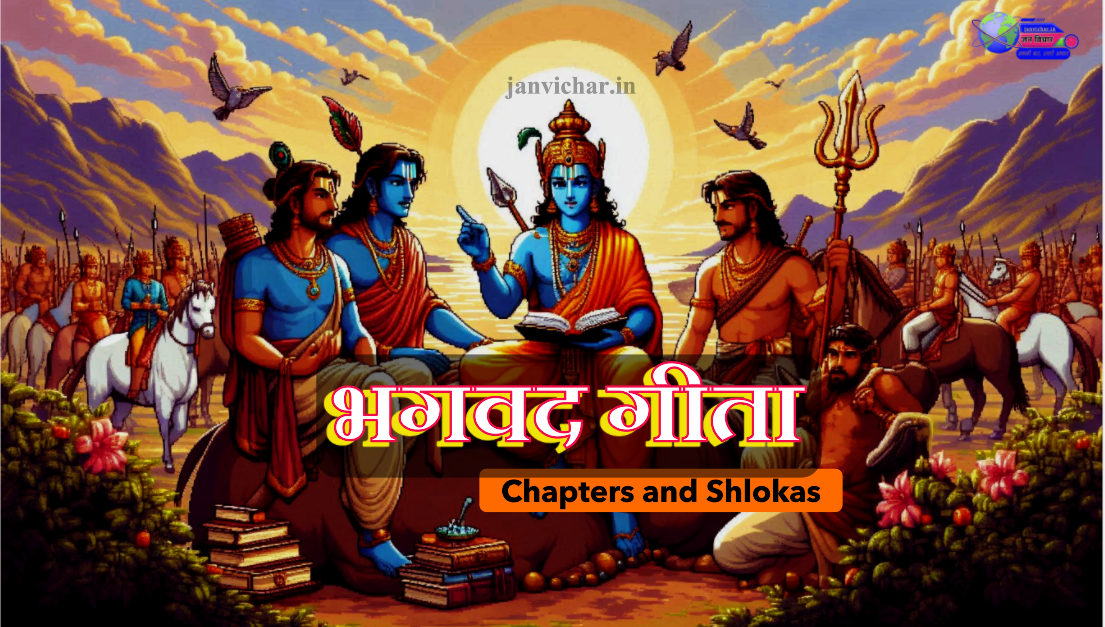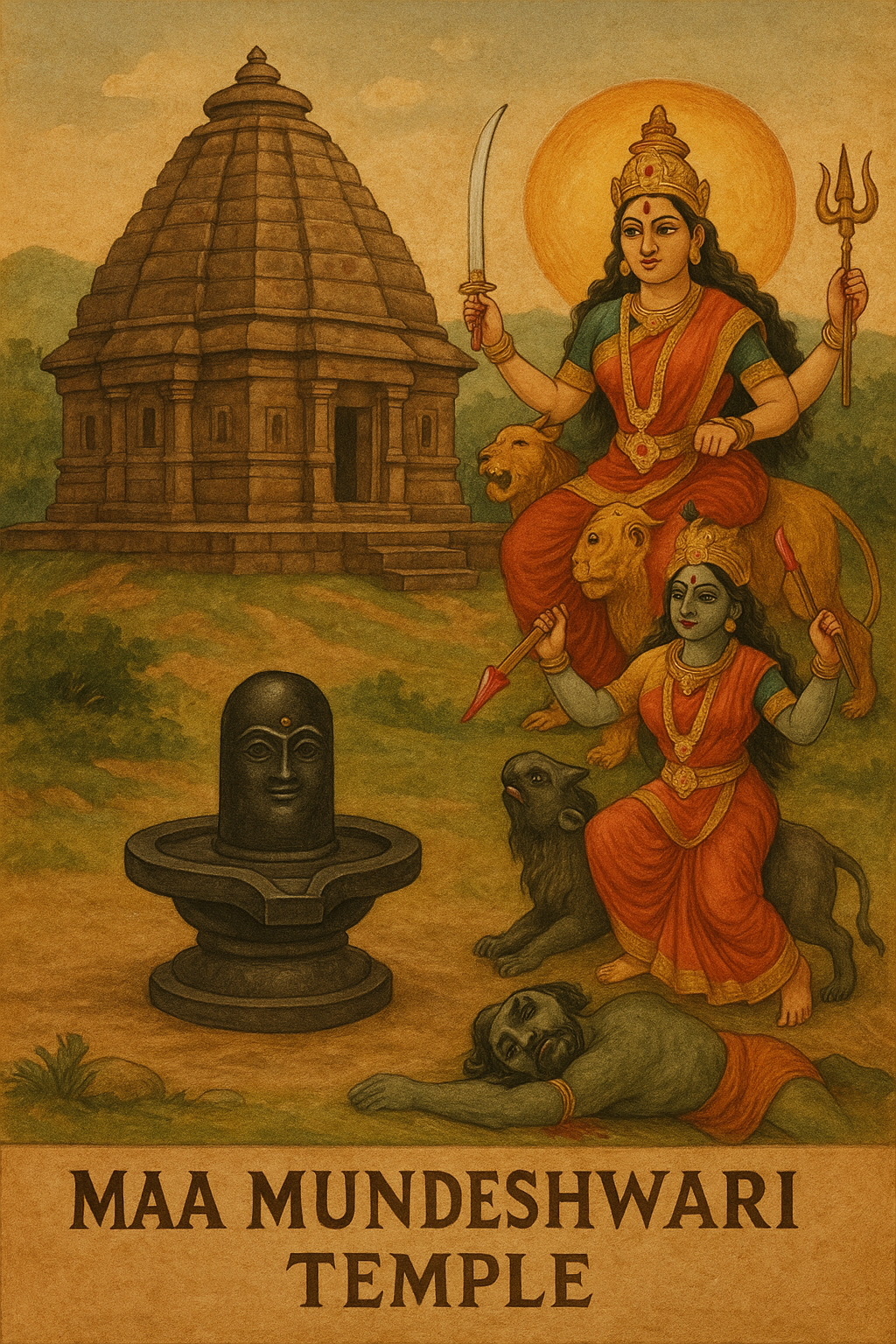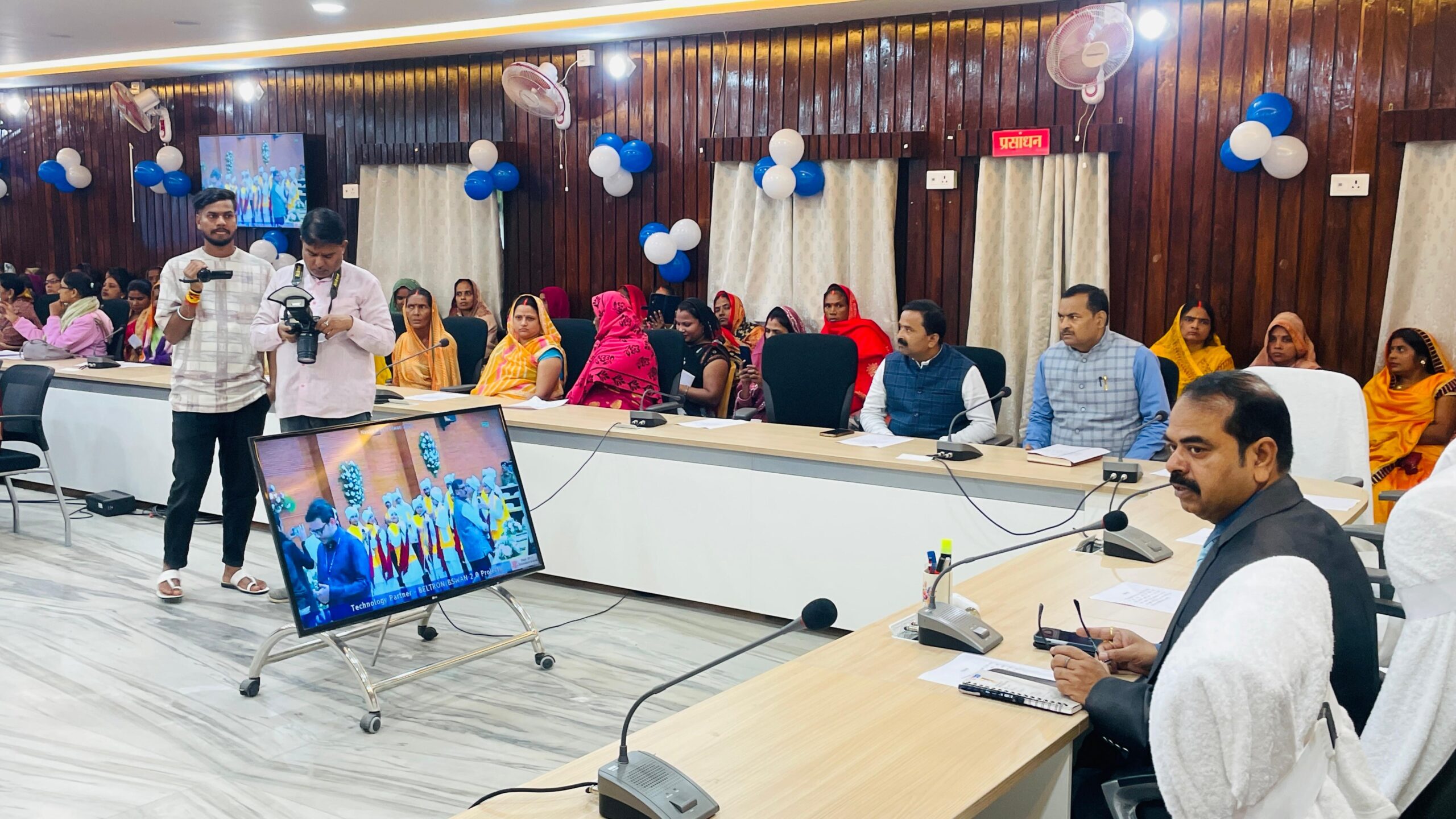
The soul is neither born, and nor does it die; nor having once existed, does it ever cease to be. The soul is unborn, eternal, ever-existing, undying, and primeval. It is not slain when the body is slain.
Verse 2.1
Sanskrit: सञ्जय उवाच | तं तथा कृपयाविष्टमश्रुपूर्णाकुलेक्षणम् | विषीदन्तमिदं वाक्यमुवाच मधुसूदनः || 1 ||
Hindi: संजय ने कहा | इस प्रकार करुणा और विषाद से अभिभूत, अश्रुपूर्ण नेत्रों वाले अर्जुन से मधुसूदन ने यह वचन कहा || 1 ||
English: Sanjaya said: Seeing Arjuna full of compassion and very sorrowful, his eyes brimming with tears, Madhusudana, Krishna, spoke the following words || 1 ||
Verse 2.2
Sanskrit: श्रीभगवानुवाच | कुतस्त्वा कश्मलमिदं विषमे समुपस्थितम् | अनार्यजुष्टमस्वर्ग्यमकीर्तिकरमर्जुन || 2 ||
Hindi: श्रीभगवान ने कहा | हे अर्जुन! यह मोह किस समय तुम पर आ पड़ा है? यह न तो आर्य पुरुषों के योग्य है, न स्वर्ग को प्राप्त कराने वाला और न कीर्ति देने वाला है || 2 ||
English: The Blessed Lord said: My dear Arjuna, how have these impurities come upon you? They are not at all befitting a man who knows the value of life. They lead not to higher planets but to infamy || 2 ||
Verse 2.3
Sanskrit: क्लैब्यं मा स्म गमः पार्थ नैतत्त्वय्युपपद्यते | क्षुद्रं हृदयदौर्बल्यं त्यक्त्वोत्तिष्ठ परन्तप || 3 ||
Hindi: हे पार्थ! इस कायरता को मत प्राप्त हो, यह तुझमें शोभा नहीं देती। हे परंतप! हृदय की इस क्षुद्र दुर्बलता को त्याग कर खड़ा हो जा || 3 ||
English: O son of Pritha, do not yield to this degrading impotence. It does not become you. Give up such petty weakness of heart and arise, O chastiser of the enemy || 3 ||
Verse 2.4
Sanskrit: अर्जुन उवाच | कथं भीष्ममहं सङ्ख्ये द्रोणं च मधुसूदन | इषुभिः प्रतियोत्स्यामि पूजार्हावरिसूदन || 4 ||
Hindi: अर्जुन ने कहा | हे मधुसूदन! मैं युद्ध में भीष्म और द्रोण को बाणों से कैसे मार सकता हूँ? वे दोनों ही पूजनीय हैं || 4 ||
English: Arjuna said: O Madhusudana, how can I counterattack with arrows in battle men like Bhishma and Drona, who are worthy of my worship? || 4 ||
Verse 2.5
Sanskrit: गुरुन्हत्वा हि महानुभावान् श्रेयो भोक्तुं भैक्ष्यमपीह लोके | हत्वार्थकामांस्तु गुरूनिहैव भुञ्जीय भोगान् रुधिरप्रदिग्धान् || 5 ||
Hindi: गुरुजनों को मारकर मैं इस संसार में भिक्षा का अन्न भी खाने योग्य नहीं रहूँगा। गुरुजनों को मारकर प्राप्त किया हुआ धन और भोग रक्त से सने हुए होंगे || 5 ||
English: It is better to live in this world by begging than to live at the cost of the lives of great souls who are my teachers. Even though desiring worldly gain, they are superiors. If they are killed, our spoils will be tainted with blood || 5 ||
Verse 2.6
Sanskrit: न चैतद्विद्मः कतरन्नो गरीयो यद्वा जयेम यदि वा नो जयेयुः | यानेव हत्वा न जिजीविषामः तेऽवस्थिताः प्रमुखे धार्तराष्ट्राः || 6 ||
Hindi: हमें यह भी नहीं पता कि हमारे लिए क्या अच्छा है – उन्हें जीतना या उनसे हारना। धृतराष्ट्र के पुत्र हमारे सामने खड़े हैं, जिनको मारकर हम जीना नहीं चाहते || 6 ||
English: Nor do we know which is better—conquering them or being conquered by them. The sons of Dhritarashtra, whom if we killed we should not care to live, are now standing before us on this battlefield || 6 ||
Verse 2.7
Sanskrit: कार्पण्यदोषोपहतस्वभावः पृच्छामि त्वां धर्मसम्मूढचेताः | यच्छ्रेयः स्यान्निश्चितं ब्रूहि तन्मे शिष्यस्तेऽहं शाधि मां त्वां प्रपन्नम् || 7 ||
Hindi: मैं कायरता के दोष से पीड़ित हो गया हूँ और मेरी बुद्धि धर्म के विषय में भ्रमित हो गई है। मैं आपसे पूछता हूँ कि मेरे लिए क्या श्रेयस्कर है। मैं आपका शिष्य हूँ और आपकी शरण में हूँ। कृपया मुझे उपदेश दें || 7 ||
English: Now I am confused about my duty and have lost all composure because of weakness. In this condition, I am asking You to tell me clearly what is best for me. Now I am Your disciple, and a soul surrendered unto You. Please instruct me || 7 ||
Verse 2.8
Sanskrit: न हि प्रपश्यामि ममापनुद्याद् यच्छोकमुच्छोषणमिन्द्रियाणाम् | अवाप्य भूमावसपत्नमृद्धं राज्यं सुराणामपि चाधिपत्यम् || 8 ||
Hindi: मैं ऐसा उपाय नहीं देखता जो इस शोक को दूर कर सके जो मेरी इंद्रियों को सुखा रहा है। मैं निर्विघ्न राज्य प्राप्त कर लूँ या देवताओं का भी राज्य प्राप्त कर लूँ, तब भी यह शोक दूर नहीं होगा || 8 ||
English: I can find no means to drive away this grief which is drying up my senses. I will not be able to dispel it even if I win a prosperous, unrivaled kingdom on earth with sovereignty like the demigods in heaven || 8 ||
Verse 2.9
Sanskrit: सञ्जय उवाच | एवमुक्त्वा हृषीकेशं गुडाकेशः परन्तप | न योत्स्य इति गोविन्दमुक्त्वा तूष्णीं बभूव ह || 9 ||
Hindi: संजय ने कहा | इस प्रकार हृषीकेश से कहकर, गुडाकेश, परंतप अर्जुन ने गोविंद से कहा कि मैं युद्ध नहीं करूँगा और चुप हो गया || 9 ||
English: Sanjaya said: Having spoken thus, Arjuna, chastiser of enemies, told Krishna, “Govinda, I shall not fight,” and fell silent || 9 ||
Verse 2.10
Sanskrit: तमुवाच हृषीकेशः प्रहसन्निव भारत | सेनयोरुभयोर्मध्ये विषीदन्तमिदं वचः || 10 ||
Hindi: हे भारत! हृषीकेश ने दोनों सेनाओं के बीच शोक में डूबे हुए अर्जुन से हँसते हुए यह वचन कहा || 10 ||
English: O descendant of Bharata, at that time Krishna, smiling in the midst of both armies, spoke the following words to the grief-stricken Arjuna || 10 ||
Verse 2.11
Sanskrit: श्रीभगवानुवाच | अशोच्यानन्वशोचस्त्वं प्रज्ञावादांश्च भाषसे | गतासूनगतासूंश्च नानुशोचन्ति पण्डिताः || 11 ||
Hindi: श्रीभगवान ने कहा | तुम उन पर शोक कर रहे हो जो शोक के योग्य नहीं हैं, फिर भी तुम ज्ञान की बातें कर रहे हो। जो ज्ञानी हैं, वे न जीवितों के लिए शोक करते हैं और न मृतकों के लिए || 11 ||
English: The Blessed Lord said: While speaking learned words, you are mourning for what is not worthy of grief. Those who are wise lament neither for the living nor for the dead || 11 ||
Verse 2.12
Sanskrit: न त्वेवाहं जातु नासं न त्वं नेमे जनाधिपाः | न चैव न भविष्यामः सर्वे वयमतः परम् || 12 ||
Hindi: न तो कभी ऐसा समय था जब मैं नहीं था, न तुम, न ये राजा। और न ही भविष्य में ऐसा होगा कि हम सब नहीं रहेंगे || 12 ||
English: Never was there a time when I did not exist, nor you, nor all these kings; nor in the future shall any of us cease to be || 12 ||
Verse 2.13
Sanskrit: देहिनोऽस्मिन्यथा देहे कौमारं यौवनं जरा | तथा देहान्तरप्राप्तिर्धीरस्तत्र न मुह्यति || 13 ||
Hindi: जैसे इस शरीर में बाल्यावस्था, युवावस्था और वृद्धावस्था आती है, वैसे ही आत्मा को दूसरा शरीर प्राप्त होता है। धीर पुरुष इसमें मोहित नहीं होते || 13 ||
English: Just as the boyhood, youth, and old age come to the embodied Soul in this body, in the same manner, is the attaining of another body; the wise man is not deluded at that.
Explanation: This verse explains the concept of reincarnation, where the soul transitions from one body to another, similar to the stages of life within a single body.
Verse 2.14
Sanskrit: मात्रास्पर्शास्तु कौन्तेय शीतोष्णसुखदुःखदाः | आगमापायिनोऽनित्यास्तांस्तितिक्षस्व भारत || 14 ||
Hindi: हे कुन्तीपुत्र! सर्दी-गर्मी, सुख-दुःख देने वाले इंद्रिय और विषयों के संयोग क्षणिक और अनित्य हैं। हे भारत! उन्हें सहन करो || 14 ||
English: O son of Kunti, the nonpermanent appearance of happiness and distress, and their disappearance in due course, are like the appearance and disappearance of winter and summer seasons. They arise from sense perception, and one must learn to tolerate them without being disturbed.
Explanation: Krishna advises Arjuna to endure the temporary experiences of pleasure and pain, as they are fleeting and arise from sensory perception.
Verse 2.15
Sanskrit: यं हि न व्यथयन्त्येते पुरुषं पुरुषर्षभ | समदुःखसुखं धीरं सोऽमृतत्वाय कल्पते || 15 ||
Hindi: हे पुरुषश्रेष्ठ! जो मनुष्य सुख-दुःख को समान समझता है और जिसे ये व्यथित नहीं करते, वह अमरत्व के योग्य होता है || 15 ||
English: O best among men (Arjuna), the person who is not disturbed by happiness and distress and is steady in both is certainly eligible for liberation.
Explanation: This verse highlights the importance of equanimity and steadiness in both joy and sorrow as a path to liberation.
Verse 2.16
Sanskrit: नासतो विद्यते भावो नाभावो विद्यते सतः | उभयोरपि दृष्टोऽन्तस्त्वनयोस्तत्त्वदर्शिभिः || 16 ||
Hindi: असत का अस्तित्व नहीं है और सत का अभाव नहीं है। तत्वदर्शियों ने इन दोनों का यथार्थ देखा है || 16 ||
English: Those who are seers of the truth have concluded that of the nonexistent (the material body) there is no endurance and of the eternal (the soul) there is no change. This they have concluded by studying the nature of both.
Explanation: Krishna explains the difference between the temporary material body and the eternal soul, emphasizing the permanence of the soul.
Verse 2.17
Sanskrit: अविनाशि तु तद्विद्धि येन सर्वमिदं ततम् | विनाशमव्ययस्यास्य न कश्चित्कर्तुमर्हति || 17 ||
Hindi: जान लो कि वह अविनाशी है जिससे यह सब व्याप्त है। इस अविनाशी आत्मा का विनाश कोई नहीं कर सकता || 17 ||
English: Know that which pervades the entire body is indestructible. No one can destroy the imperishable soul.
Explanation: This verse reiterates the indestructible nature of the soul, which pervades the entire body.
Verse 2.18
Sanskrit: अन्तवन्त इमे देहा नित्यस्योक्ताः शरीरिणः | अनाशिनोऽप्रमेयस्य तस्माद्युध्यस्व भारत || 18 ||
Hindi: ये शरीर नाशवान हैं, परंतु इनमें स्थित आत्मा अविनाशी, असीमित और नित्य है। इसलिए, हे भारत! युद्ध कर || 18 ||
English: The material body of the indestructible, immeasurable, and eternal living entity is sure to come to an end; therefore, fight, O descendant of Bharata.
Explanation: Krishna encourages Arjuna to perform his duty as a warrior, reminding him that the body is temporary, but the soul is eternal.
Verse 2.19
Sanskrit: य एनं वेत्ति हन्तारं यश्चैनं मन्यते हतम् | उभौ तौ न विजानीतो नायं हन्ति न हन्यते || 19 ||
Hindi: जो इसे मारने वाला समझता है और जो इसे मरा हुआ समझता है, वे दोनों ही अज्ञानी हैं। यह न मारता है और न मारा जाता है || 19 ||
English: He who thinks that the soul kills, and he who thinks of it as killed, are both ignorant. The soul kills not, nor is it killed.
Explanation: This verse clarifies that the soul neither kills nor can be killed, emphasizing its eternal nature.
Verse 2.20
Sanskrit: न जायते म्रियते वा कदाचि- न्नायं भूत्वा भविता वा न भूयः | अजो नित्यः शाश्वतोऽयं पुराणो न हन्यते हन्यमाने शरीरे || 20 ||
Hindi: आत्मा न कभी जन्म लेती है और न मरती है। यह न तो उत्पन्न हुई है, न उत्पन्न होगी। यह अजन्मा, नित्य, शाश्वत और पुरातन है। शरीर के मारे जाने पर भी यह नहीं मारी जाती || 20 ||
English: The soul is neither born, and nor does it die; nor having once existed, does it ever cease to be. The soul is unborn, eternal, ever-existing, undying, and primeval. It is not slain when the body is slain.
Explanation: This verse further elaborates on the eternal and unchanging nature of the soul, which transcends birth and death.
Verse 2.21
Sanskrit: वेदाविनाशिनं नित्यं य एनमजमव्ययम् | कथं स पुरुषः पार्थ कं घातयति हन्ति कम् || 21 ||
Hindi: जो इस आत्मा को अविनाशी, नित्य, अजन्मा और अव्यय जानता है, हे पार्थ! वह पुरुष किसे मारता है और किसे मरवाता है? || 21 ||
English: O Partha, how can a person who knows that the soul is indestructible, eternal, unborn, and immutable kill anyone or cause anyone to kill?
Explanation: Krishna questions how anyone who understands the true nature of the soul can think of killing or causing someone to kill.
Verse 2.22
Sanskrit: वासांसि जीर्णानि यथा विहाय नवानि गृह्णाति नरोऽपराणि | तथा शरीराणि विहाय जीर्णा- न्यन्यानि संयाति नवानि देही || 22 ||
Hindi: जैसे मनुष्य पुराने वस्त्रों को त्यागकर नए वस्त्र धारण करता है, वैसे ही आत्मा पुराने शरीरों को त्यागकर नए शरीर धारण करती है || 22 ||
English: As a person puts on new garments, giving up old ones, the soul similarly accepts new material bodies, giving up the old and useless ones.
Explanation: This verse uses the analogy of changing clothes to explain the process of reincarnation, where the soul discards old bodies and takes on new ones.
Verse 2.23
Sanskrit: नैनं छिन्दन्ति शस्त्राणि नैनं दहति पावकः | न चैनं क्लेदयन्त्यापो न शोषयति मारुतः || 23 ||
Hindi: इस आत्मा को शस्त्र काट नहीं सकते, अग्नि जला नहीं सकती, जल गीला नहीं कर सकता और वायु सुखा नहीं सकती || 23 ||
English: The soul can never be cut to pieces by any weapon, nor burned by fire, nor moistened by water, nor withered by the wind.
Read Chapter 1 – Bhagavad gita Chapter 1: Arjuna Vishada Yoga 2/2 – Shlokas 27 -47 Know more – Hindi/English/Sanskrit
Bhagavad gita Chapter 1: Arjuna Vishada Yoga – Shlokas 1 -27 Know more – Hindi/English
![]()
Discover more from जन विचार
Subscribe to get the latest posts sent to your email.







